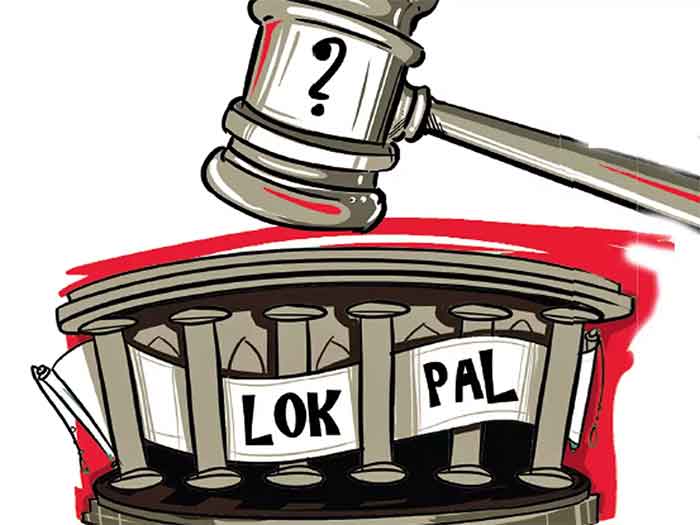
If you were living in India in mid-2011 and taking an even cursory glance at media headlines, you may been easily led to believe that the heavens are going to fall and there will be total collapse if the demand for Jan Lokpal (visualized then as a powerful anti-corruption agency to hear complaints against public functionaries) as a one-shot solution for all corruption problems is not accepted immediately. Even as some saner voices cautioned that corruption is best curbed by a balanced combination of a number of steps taken together to complement each other, the voices for a one-shot solution went on becoming more shrill.
Well, the country got its Lokpal law in 2013 and even though the new union government in 2014 was led by a party which was very supportive of the Lokpal agitation, it took another six years to actually get Lokpal functional in 2019. We now have a period of about four years behind us to examine the actual record of the Lokpal and a recent parliamentary panel report helps us to review this.
As per the information provided by the office of the Lokpal to the panel, “ it has not prosecuted even a single person accused of graft till date.” In fact 68% of corruption complaints submitted to the Lokpal were disposed of without any action being taken. Only 3 complaints were fully investigated. 36 complaints were at a preliminary stage. The Lokpal was allocated a budget of INR 197 crore in 2022-23, while a higher amount was spent on purchasing its office space.
The office of the Lokpal has adopted a policy of rejecting a lot of complaints on the basis of not being in ‘correct format’. While advising against this practice, the parliamentary panel has also expressed its regret at the ‘far from satisfactory’ performance of Lokpal.
The other big demand of the same or a companion movement in and around 2011 was related to taking effective steps for repatriation of stolen or tax-evasion money from abroad, particularly from foreign banks. This too has not led to any real and significant progress. Earlier this popular demand led to an election promise in 2014 by the BJP that so much of foreign money would be brought back to India that INR 15 lakh or 1.5 million would be deposited in the bank account of every citizen of India. However after election victory it was explained that this was only an idiom (jumla).
Despite this dismal performance relating to Lokpal and related issues , all those who had agitated for Lokpal as an issue of the greatest importance then have been more or less silent on this issue for years now. Some of them have become ministers or chief ministers or governors or big businessmen, some of them are involved in expansion of big businesses in dubious ways while posturing as saints and babas, some of them are also themselves facing corruption charges, rightly or wrongly. However corruption has continued to remain at high levels, and any serious steps, effective steps to curb corruption can scarcely be seen.
The implementation of the Right to Information Act has been much weakened compared to earlier days of this law. Information Commissions have been weakened and have unfilled vacancies for long times, disposal of cases and appeals by them is taking a very long time, replies to many RTI queries are unduly evasive. Many RTI activists face threats and as many as about 100 of them have been killed since this law was enacted.
In fact some of the anti-corruption measures of recent times have been increasingly seen to have hindered the proper implementation of pro-poor programs instead of improving or reforming them. This has been widely alleged, for instance in the context of the rural employment guarantee law or NREGA, where the orders relating to making Aadhaar based payments system mandatory have been linked to the possibility of wages being denied or delayed for a large number of workers.
Hence there is a growing need to return to the demand for a comprehensive package of several anti-corruption measures which taken together can effectively reduce corruption and provide much-needed relief to people. Those raising their voice against corruption in a responsible way as well as RTI activists should get protection.
Bharat Dogra was the first Honorary Convener of the National Campaign for People’s Right to Information, and has contributed several books, booklets and articles on this subject. The views expressed are strictly his own.









































